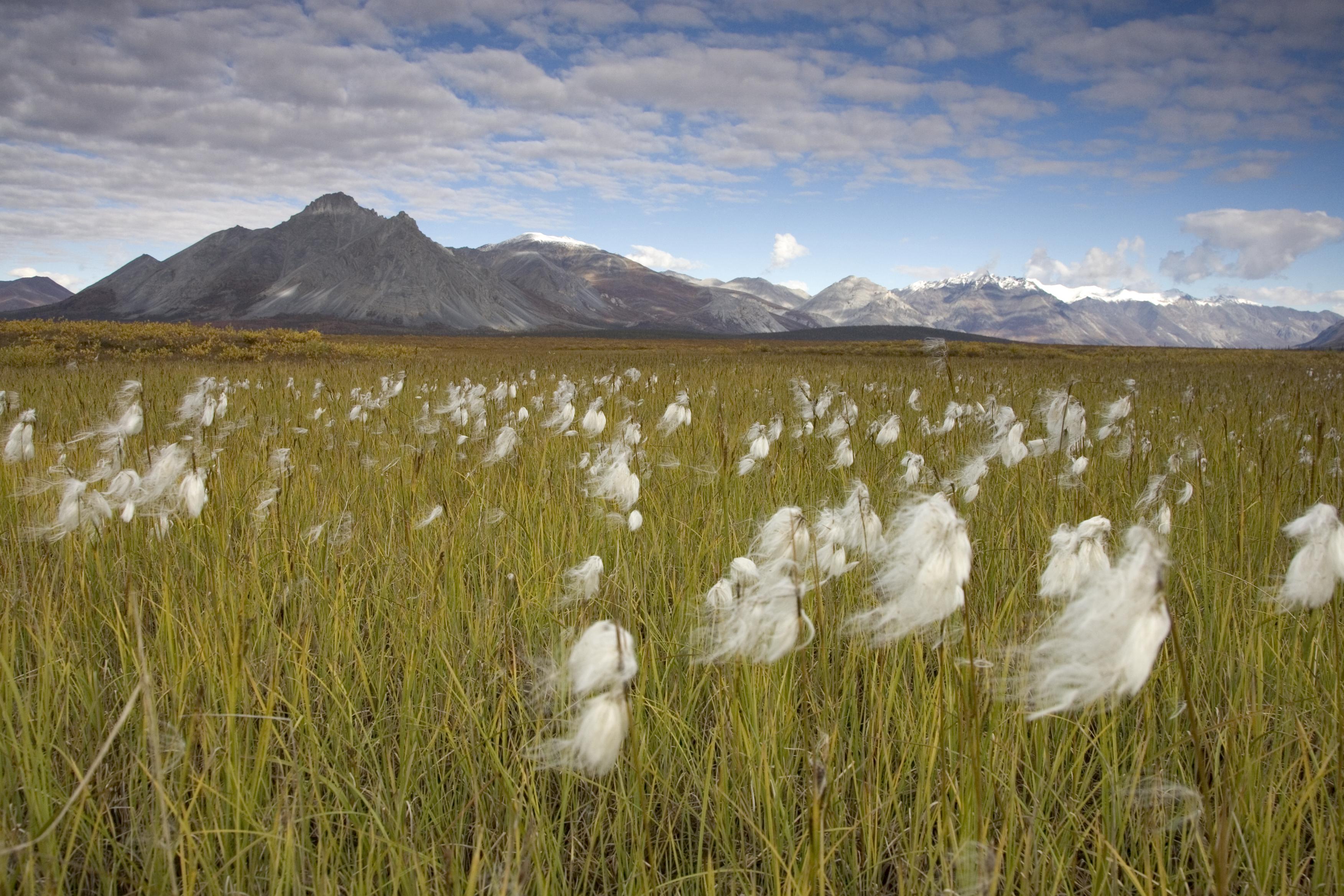When the sun comes shining, then I was strolling
In the wheat fields waving and dust clouds rolling
The voice was chanting as the fog was lifting
This land was made for you and me
-Woody Guthrie
In 2017, Congress passed new tax legislation allowing for the leasing of oil rights in the Arctic National Wildlife Refuge.[1] Oil drilling there has been contested since the 70s and reflects a larger debate over how much the government should be involved in wilderness conservation.[2]
The modern Republican Party’s environmental stance is best observed through President Trump’s Environmental Protection Agency (EPA) heads: Scott Pruitt—who sued the EPA 14 times as Oklahoma’s Attorney General—and former coal industry lobbyist Andrew Wheeler.[3] Many see these appointments as part of the administration’s pro-business agenda and argue that it is not possible for business interests to coexist with environmental conservation. Republican’s recent push for environmental deregulation makes it hard to remember that the GOP hasn’t always fought governmental protection of the environment.
Republican Richard Nixon supported many environmental bills as president, even founding the EPA and Environmental Quality Council.[4][5] The Democrat-controlled Congress passed the National Environmental Policy Act of 1969 (372-15 in the House, unanimous in the Senate) before Nixon signed it. The environment used to be a clear consensus issue; why is this no longer the case?[6][7]
Today’s GOP platform decries EPA regulation of carbon dioxide emissions, citing “shoddy science.”[8] Though the planet has seen naturally-occurring climate change before, scientific consensus affirms that our release of greenhouse gasses warms the planet in a relatively miniscule amount of time.[9] It’s not that the Right wants to promote the destruction of our natural land, but they dislike the strict and inefficient bureaucracy that comes with preserving it.[10] Bureaucratic regulation can be problematic, but it is necessary for preserving our natural parks and wildlife centers.
This necessity can and should be recognized across the political spectrum; for example, hunters and environmentalists, two groups whose political beliefs are often at odds. Roughly 90% of hunters are white and 70% are men, a demographic that tends to favor Republicans and conservatism.[11][12] Environmentalists are commonly grouped into the Left and are associated with progressivism, as Democrats almost always cast pro-environment votes.[13] While there are exceptions, most hunters vote red and most environmentalists vote blue.
However, these groups should work together to support policies of environmental protection. Environmentalists often believe that humanity should preserve the intrinsic value of the natural environment. Hunters and fishermen need plentiful wildlife and clean waterways to maximize the hunting and fishing available. Environmentalists should think of hunters as more of an ally than an enemy because they keep wildlife populations in check, and we must control animal populations to rectify our previous decimation of natural predators (although some are making a comeback).[14][15]
Hunters are only one element of mainstream conservatism. Even if one is not directly invested in environmental quality, how we interact with nature has profound effects on all humans. Airborne pollution has been linked to asthma and other cardiovascular diseases.[16] A cursory glance at Beijing, where people are often advised to wear face masks, indicates the problems of neglecting pollution.[17] Agricultural runoff contaminates rivers, lakes, underground reservoirs, and other sources of drinking water.[18]
Lack of proper governmental regulation of resources can lead to economic decline, environmental degradation, and social issues. A key concept is the Tragedy of the Commons, a paradox in which individuals and corporations over-consume limited resources at the expense of the general population and themselves.[19] Governmental organization can combat this paradox and preserve resources we would otherwise deplete, preventing environmental ruin.
Threats to national parks and public land include overfishing, water quality, and climate change.[20] Overfishing of a single species can destroy an entire ecosystem, as some fish (i.e. keystone species) play a crucial role in the natural food chain.[21] Chemical pollutants and nutrient-rich agricultural runoff degrades water quality, and with it, the health of all species in the ecosystem.[22] Climate change is altering—and in some cases destroying—habitats by moving the preferred areas for foliage and raising water temperatures, which forces animals to relocate.[23][24] Government involvement is vital in limiting overfishing, controlling water quality, and reducing the effects of climate change.
The Libertarian Party and some Republicans call for free-market solutions to environmental problems, namely the incorporation of 3-D property rights into our legal structure.[25][26] These rights extend property boundaries into the air, further clarifying personal land ownership. If property—including the air above it—is polluted or damaged by an individual or company, the owner could file suit. The central idea is that there must be a “clear definition and easy defense of one’s rights,” in order for individuals to make these claims.[27]
In theory, this would partially transfer the burden of enforcement from government agencies to individuals and communities. But that might not be enough. Even an article from the conservative Heritage Foundation admits that “some of the decreases [in CO2 emissions] are undoubtedly a result of government standards that rightly recognized the detriments to health of those pollutants.”[28] It remains to be seen how a version of free-market environmentalism, such as 3-D property rights, would work in practice.
Over 150 years ago, Abraham Lincoln signed the Yosemite Grant, marking the first time the federal government preserved land for public use.[29] About half a century later, Theodore Roosevelt protected approximately 250 million acres of public land, including 150 national forests. Some of our most respected leaders recognized the importance of saving natural beauty.[30] We ought to continue in their footsteps by keeping these places uncorrupted of human interference and resolving threats to national parks.
We should strive for smaller, more local governing, while recognizing that federal environmental conservation is imperative for environmental preservation. In the past, we acted to promote and protect the United States’ abundant beauty and resources. Now we must act to ensure they remain intact for us and our posterity.
[1] Siciliano, John. “Democrat’s to mark Trump’s tax bill’s anniversary with effort to appeal Arctic drilling.” Washington Examiner Online. November 19, 2018. https://www.washingtonexaminer.com/policy/energy/democrats-to-mark-trumps-tax-bills-anniversary-with-effort-to-repeal-arctic-oil-drilling/.
[2] Shogren, Elizabeth. “For 30 Years, A Political Battle Over Oil and ANWR.” NPR Online. https://www.npr.org/templates/story/story.php?storyId=5007819. November 10, 2005.
[3] “Pruitt v EPA: A Compilation of 14 Challenges of EPA Rules Filed by the Oklahoma Attorney General.” Accessed March 28, 2019. https://www.documentcloud.org/documents/3290872-Pruitt-v-EPA-a-Compilation-of-Oklahoma-14.html.
[4] “The Origins of EPA.” United States Environmental Protection Agency. Accessed March 28, 2019. https://www.epa.gov/history/origins-epa.
[5] Rothman, Lily. “Here’s Why the Environmental Protection Agency Was Created.” Time. March 22, 2017. http://time.com/4696104/environmental-protection-agency-1970-history/.
[6] “TO PASS H.R. 12549, A BILL TO AMEND THE FISH AND WILDLIFE COORDINATION ACT SO AS TO PROVIDE FOR THE ESTABLISHMENT OF A COUNCIL ON ENVIRONMENTAL QUALITY.” GovTrack. Accessed March 28, 2019. https://www.govtrack.us/congress/votes/91-1969/h85.
[7] “National Environmental Policy Act.” Ballotpedia. Accessed March 28, 2019. https://www.govtrack.us/congress/votes/91-1969/h85.
[8] “GOP Political Platform.” GOP. Accessed March 28, 2019. https://www.gop.com/platform/americas-natural-resources/.
[9] Oreskes, Naomi. “The Scientific Consensus on Climate Change.” Science Mag. December 03, 2004. http://science.sciencemag.org/content/306/5702/1686.full.
[10] Prendergast, Canice. “The Limits of Bureaucratic Efficiency.” University of Chicago & NEBR. May 9, 2001. http://web.mit.edu/14.282/www/Prendergast_BureauctraticEfficiency.pdf.
[11] Krebs, Natalie. “Why We’re Losing Hunters and How We Can Fix It.” Outdoor Life. January 18, 2018. https://www.outdoorlife.com/why-we-are-losing-hunters-and-how-to-fix-it.
[12] Bycoffe, Aaron, and David Wasserman.“What Would it Take to Turn Blue State Red?” FiveThirtyEight. Accessed March 28, 2019. https://projects.fivethirtyeight.com/2016-swing-the-election/.
[13] “National Environment Scorecard.” LCV. Accessed March 28, 2019. http://scorecard.lcv.org/members-of-congress.
[14] “South Texas Wildlife Management.” Texas Parks & Wildlife. Accessed March 28, 2019. https://tpwd.texas.gov/landwater/land/habitats/southtx_plain/habitat_management/gun.phtml.
[15] Rice, Doyle. “Alligators, Sharks, Mountain Lions, and Other Predators are Making a Comeback.” USA Today. May 09, 2018. https://www.usatoday.com/story/news/nation/2018/05/09/alligators-sharks-mountain-lions-and-other-predators-making-comeback/591223002/.
[16] “Air Pollution.” National Institute of Environmental Health Service. Accessed March 28, 2019. https://www.niehs.nih.gov/health/topics/agents/air-pollution/index.cfm.
[17] Franchineau, Helene, and Nomaan Merchant. “Planning China Travel? Take a Face Mask to Protect from Deadly Smog.” Seattle Times. February 08, 2017. https://www.seattletimes.com/life/travel/planning-china-travel-take-a-face-mask-to-protect-from-deadly-smog/.
[18] “Protecting Water Quality from Agricultural Runoff.” EPA. Accessed March 28, 2019. https://www.epa.gov/sites/production/files/2015-09/documents/ag_runoff_fact_sheet.pdf
[19] Hardin, Garrett. “Tragedy of the Commons.” EconLib. Accessed March 28, 2019. https://www.econlib.org/library/Enc/TragedyoftheCommons.html.
[20] “Threats.” National Park Service. Accessed March 28, 2019. https://www.nps.gov/subjects/oceans/threats.htm.
[21] “Overfishing.” National Park Service. Accessed March 28, 2019. https://www.nps.gov/subjects/oceans/overfishing.htm.
[22] “Water Quality.” National Park Service. Accessed March 28, 2019. https://www.nps.gov/subjects/oceans/water-quality.htm.
[23] Dahlman, LuAnn, and Rebecca Lindsay. “Climate Change: Ocean Heat Content.” Climate.gov. August 1, 2018. https://www.climate.gov/news-features/understanding-climate/climate-change-ocean-heat-content.
[24] Welch, Craig. “Half of All Species Are on the Move—And We’re Feeling It.” National Geographic. April 27, 2017. https://news.nationalgeographic.com/2017/04/climate-change-species-migration-disease/.
[25] “2018 Platform.” Libertarian Party. Accessed March 28, 2019. https://www.lp.org/platform/.
[26] Radil, Amy. “These Republicans Say They Are Green. Can They Bridge the Environmental Divide?” KUOW. September 6, 2018. https://www.kuow.org/stories/these-republicans-say-they-re-green-and-ready-to-bridge-the-environmental-divide.
[27] Stroup, Richard. “Free-Market Environmentalism.” EconLib. Accessed March 28, 2019. https://www.econlib.org/library/Enc/FreeMarketEnvironmentalism.html.
[28] Loris, Nicolas, and Elliot Raia, “To Improve the Environment, Look to the Free Market. ” The Heritage Foundation. March 6, 2018. https://www.heritage.org/environment/commentary/improve-the-environment-look-the-free-market.
[29] “Mission & History.” National Park Foundation. Accessed March 28, 2019. https://www.nationalparks.org/about-foundation/mission-history.
[30] “Theodore Roosevelt and Conservation.” National Park Service. Accessed March 28, 2019. https://www.nps.gov/thro/learn/historyculture/theodore-roosevelt-and-conservation.htm.



